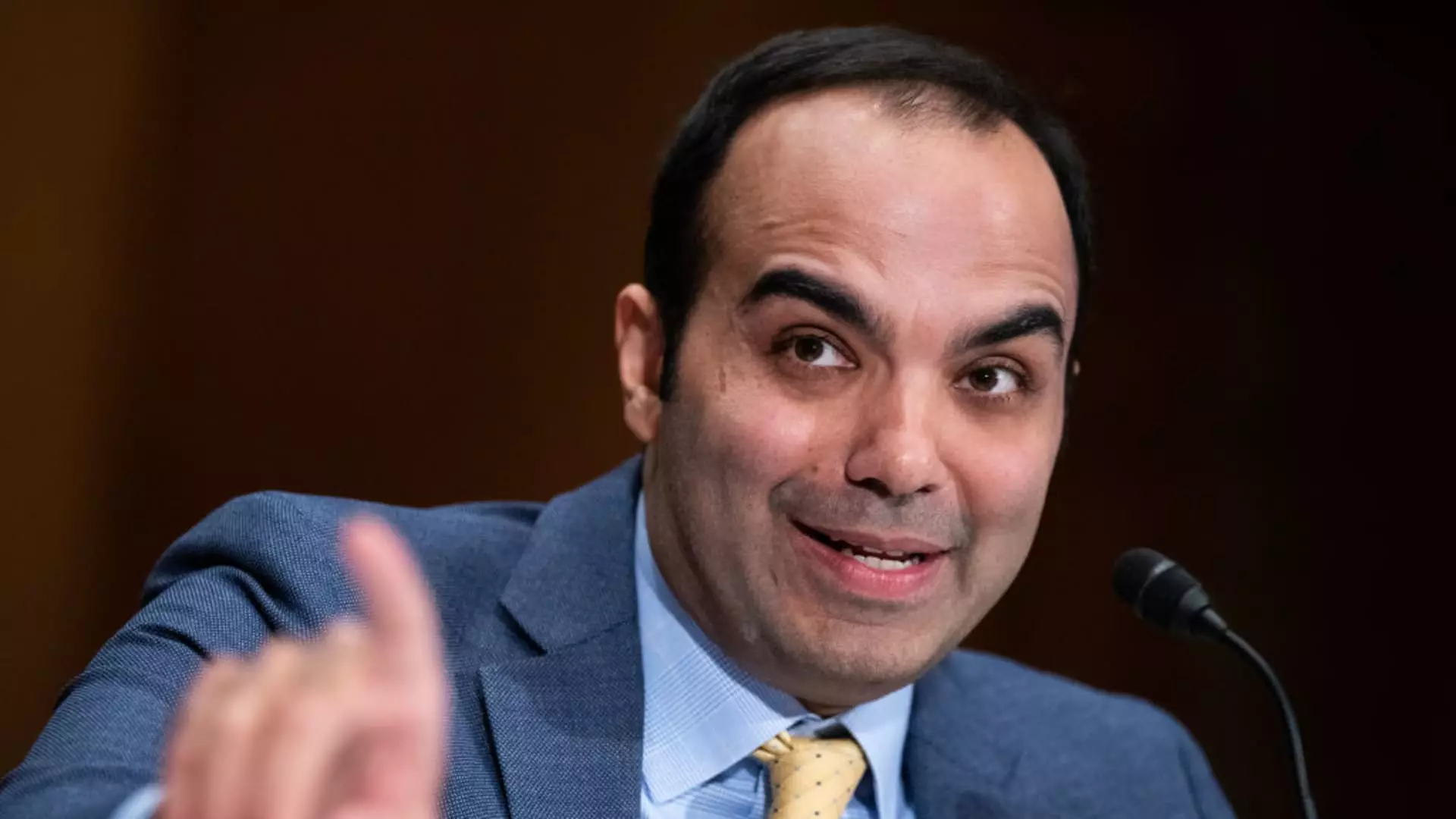The Consumer Financial Protection Bureau (CFPB) recently made headlines with its announcement to implement stricter supervision over nonbank entities providing financial services, particularly those related to digital payments and wallet applications. This updated regulatory approach aims to ensure that major tech firms and fintech companies adhere to the established laws that govern traditional banking institutions. The CFPB’s latest rule, set to take effect shortly, responds to the growing significance of digital payments in everyday financial transactions and seeks to safeguard consumer interests in this evolving landscape.
Under the new regulation, any nonbank firm conducting a minimum of 50 million transactions per year will fall under the CFPB’s scrutiny. This marks a significant shift in oversight, as it focuses not only on traditional financial entities but also on major players in the tech industry such as Apple, Google, and Amazon. Prominent fintech companies, including PayPal and Block, along with popular peer-to-peer payment services like Venmo and Zelle, will also be subject to these provisions. The regulatory shift aims to better align the operational standards of these tech-based financial services with those of established banking institutions, fostering a more uniform landscape for consumer financial protection.
CFPB Director Rohit Chopra emphasized the necessity of this oversight, asserting that the nature of digital payments has matured from a mere convenience to an essential component of everyday financial management. With millions of Americans relying on payment apps to store money and make transactions, the CFPB’s engagement in this sector is both timely and crucial. The rule aims to enhance protections around consumer privacy, mitigate the risk of fraud, and prevent unwarranted account closures—issues that have seen an uptick as digital financial services proliferate.
It is noteworthy that the CFPB’s initial proposal sought to involve firms processing at least 5 million transactions annually. However, this threshold has since been raised to 50 million transactions, effectively scaling down the number of companies directly affected by the enhanced oversight from around 17 to just seven. This change may reflect a balance between regulatory rigor and the practicalities of monitoring a wider array of emerging financial services. Moreover, transaction-specific applications, such as those used exclusively at certain retailers, remain exempt from the new rules, showcasing a measured approach to regulation that distinguishes between various types of service provision.
Interestingly, the banking sector has reacted positively to the CFPB’s newfound focus on the fintech space, believing that the actions taken could level the playing field. Many traditional banks contend that as tech companies expand their services within the financial domain, they should be held to comparable standards that ensure consumer safety and prevent potential abuses occurring in a largely unregulated environment. This alignment of interests between banks and regulators could signal a new era of collaboration aimed at strengthening consumer protections across the board.
As the rule prepares to take effect, questions loom regarding the potential impacts of future political shifts on its permanence and enforcement. Speculations arise about how the incoming administration may approach the CFPB’s regulatory framework, particularly given past debates surrounding the efficacy of regulatory bodies. Regardless, the current landscape suggests a growing acknowledgment of the importance of oversight in the realm of digital finance, which may catalyze further protections aimed at consumers engaged in an increasingly complex financial world.
The CFPB’s new regulation represents a crucial step toward more robust oversight of nonbank financial service providers that operate within the digital payments ecosystem. As consumers increasingly depend on digital platforms for managing their financial transactions, ensuring compliance with regulatory standards cannot be overlooked. This initiative not only aims to shield consumers from potential vulnerabilities but also seeks to establish a baseline of accountability across a rapidly evolving financial landscape. The journey ahead for digital payment oversight will likely be marked by ongoing discussions about best practices, enforcement, and the challenge of keeping pace with innovation while safeguarding consumer interests.

